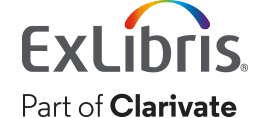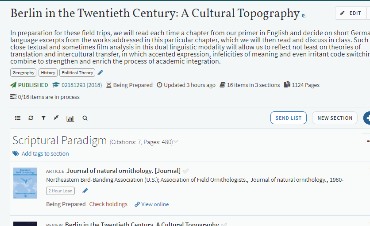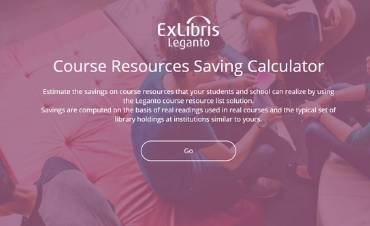Jessie Ransom, Ex Libris
Open Educational Resources (OER) initiatives remain high on the agenda across US campuses. A report released earlier this year by Ithaka S+R surveying faculty members in the United States includes a particularly interesting set of key findings. I strongly encourage exploring this report, as the data and analysis stretches across various aspects of higher education. One of the findings that I thought was particularly surprising is the percentage of faculty that expressed an interest in using OER in their courses, specifically,
“There is substantial interest in use of open educational resources for instructional practices, particularly from younger faculty members. About six in ten respondents are very interested in using open educational resources (OER), and roughly half strongly agreed that they would like to adopt new instructional approaches with OER.” [1]
While awareness of OER and interest in using it has certainly grown over the past several years, the scale of these findings is very exciting. Six in ten faculty making this kind of a statement is something that should not be ignored. Of course, many faculty, libraries, and institutions have already invested in the shift to OER for course materials, or are at least in exploring this option, but there is certainly more room for this shift to grow, especially as more faculty communicate their willingness to move in this direction.

The skills and expertise that librarians possess make libraries a natural ally in OER initiatives.![]()
OER and Librarian Expertise
As the use of OER increases across institutions, libraries have the potential to play a valuable role and strategically support teaching and learning in a new way. In fact, the skills and expertise that librarians possess make libraries a natural ally in OER initiatives, especially considering some of the known challenges of OER:
- Finding relevant course content: I sometimes joke that I have a master’s degree in googling, but the reality is that librarians understand search functionality and search strategy in a way that is unique to the profession. While OER resources are often not included in existing library systems or platforms, librarians can help find them because librarians are experts at online searching. This expertise includes tracking down the many disconnected OER repositories that exist, but beyond this, librarians also have the skills and experience to understand searching within an OER repository. For example, librarians can look at a set of results and determine how the search functionality of the site is working; they can also understand additional filtering, browsing, or advanced search options. Sometimes it’s just a matter of knowing that this type of functionality might exist that allows a librarian to track it down, making it easier for librarians to find the content that faculty are looking for. And, of course, librarians can also recommend additional content from the library collection where a full OER replacement is not already available for a course.
- Evaluating the quality of a resource: Who taught you how to evaluate resources as a kid? Your librarian! While instructors are the ultimate subject matter experts and will have the final say in what materials they are using in their courses, librarians are well versed in looking at a resource and critically analyzing its credibility. What is the source? Are there references? When was it last updated? Librarians are good at spotting and describing red flags for instructors in the same way they do every day for students. Completely unrelated to this, are you familiar with the Pacific Northwest Tree Octopus?
- Describing resources for search and discovery: The Ithaka S+R Faculty Survey also shows that significantly more instructors are using existing OER than are creating new content—approximately 32% of survey respondents said that they have used open textbooks, while only 7% of faculty said they have created open textbooks. While this is not surprising given the amount of time and effort involved in creating OER, there are certainly faculty and institutions that are invested in storing and sharing locally created OER, and there is potential for substantial growth in the future. Librarians should absolutely be involved in these projects. As I mentioned above, searching for and discovering relevant content is one of the major challenges of OER. Luckily, organizing and describing resources in a way that makes them discoverable is exactly what librarians do.
- Understanding copyright: As instructors start using OER in their courses, they are likely to have questions about exactly what they can do under the various Creative Commons licenses. And if they’re creating their own content, what should they consider when selecting a CC license for their own material? Some institutions have a specific copyright librarian on staff, which is an obvious asset. Even if this is not the case for your institution, many libraries will still have someone who can provide copyright guidance, or at least point an instructor to credible information that may help answer their questions.
Looking at some of the challenges surrounding OER and the expertise of librarians in general, it makes sense for libraries to act as a resource for faculty exploring OER. In the end, the shift to OER requires energy and enthusiasm to be successful. It is not easy to convert a course to OER. If you happen to be the person at your institution who is passionate about OER, get out there and get involved! There is the potential to greatly benefit students and instructors, and to further emphasize the value that the library and library staff provide to the larger institution.
Further reading:
Leganto: Supporting the Use of Open Educational Resources (OER)
—
[1] Blankstein, M., & Wolff-Eisenberg, C. (2019, April 12). Ithaka S+R US Faculty Survey 2018. https://doi.org/10.18665/sr.311199
November 14, 2019






